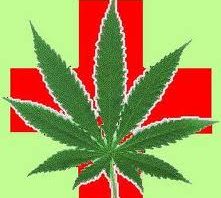Psychiatric disorders are under-reported illnesses that affect the quality of life for the suffering patient. Post-Traumatic Stress Disorder (PTSD) is a subset of anxiety disorders in which one suffers from episodes of panic and anxiety after an extremely stressful situation. These feelings are brought back by a trigger, such as sounds and events that may remind the individual of the initial cause. (See http://www.ptsd.va.gov/ for more information about PTSD. While the stigma associated with reaching out for psychiatric therapy is still very much relevant, receiving this help is becoming both more common and socially acceptable. In response to this, the market for prescription drugs that treat those with mental issues is very profitable. Much is still unknown about all of the chemical pathways of the brain, and new findings may prove important in developing new pharmaceuticals. Activity and signaling in the brain is an area of continued research.
The endocannabinoid system plays a role in areas of the brain that function in memory, mood, cognition, and emotion. CB1R, a type of cannabinoid receptor, is essential for handling stressful situations that may result in anxiety and aggression. When this receptor is removed (referred to as CB1R knock outs), studies show that that mice exhibit increased anxiety and increased aggressiveness, especially in highly stressful situations. In addition, CB1R enables behavioral adaptation following the development of negative memories.
Phytocannabinoids are derivatives of marijuana, or cannabis, which can activate the endocannabinoid system and alter the central nervous system. While parts of the plant can be helpful in artificially stimulating the body’s response to stress, other parts of the plant can lead to negative effects. THC (delta-9-tetrahydrocannabinol) is the chemical compound found in cannabis that is responsible for addictive and psychotropic properties. When abused, the changes to the central nervous system may lead to dependence.
Should marijuana be prescribed for soldiers returning with PTSD? Positive and negative consequences exist and would have to be weighed when making a decision in this case. Stimulation of the endocannabinoid system would lower anxiety levels, decrease aggressiveness, and assist in the elimination of destructive memories. These benefits, however, may not outweigh the harm that could ensue from the use of marijuana by those with PTSD, as it does not usually exist as the solitary problem for these individuals. Alcoholism is common in veterans as is abuse of other controlled substances and illegal drugs. (See http://www.drugabuse.gov/publications/topics-in-brief/substance-abuse-among-military-veterans-their-families for statistics and more information regarding substance abuse among veterans). The addictive properties of marijuana that lead to dependence may be destructive for an individual trying to cope with the stresses and imagery associated with war. Substance abuse of alcohol, marijuana, street drugs, or prescription drugs will only delay the healing that is desired.
Legalization of marijuana is a highly debated and highly controversial issue. While it can treat pain, anxiety, relieve nausea and increase appetite in chemo patients, and relieve eye pressure for those with glaucoma, there are definite risk factors that need to be considered. In the case of use of marijuana to treat the symptoms of PTSD, there is just as much room for debate. More studies will need to be completed before the whole picture can be known.
As with any other treatment, one should consult with a doctor before beginning any sort of action plan. Each individual should evaluate their own needs, genetic and environmental risk factors, and possible benefits before seeking prescriptions for any psychiatric disorder.
How Might Medicinal Marijuana Affect Soldiers With PTSD?
